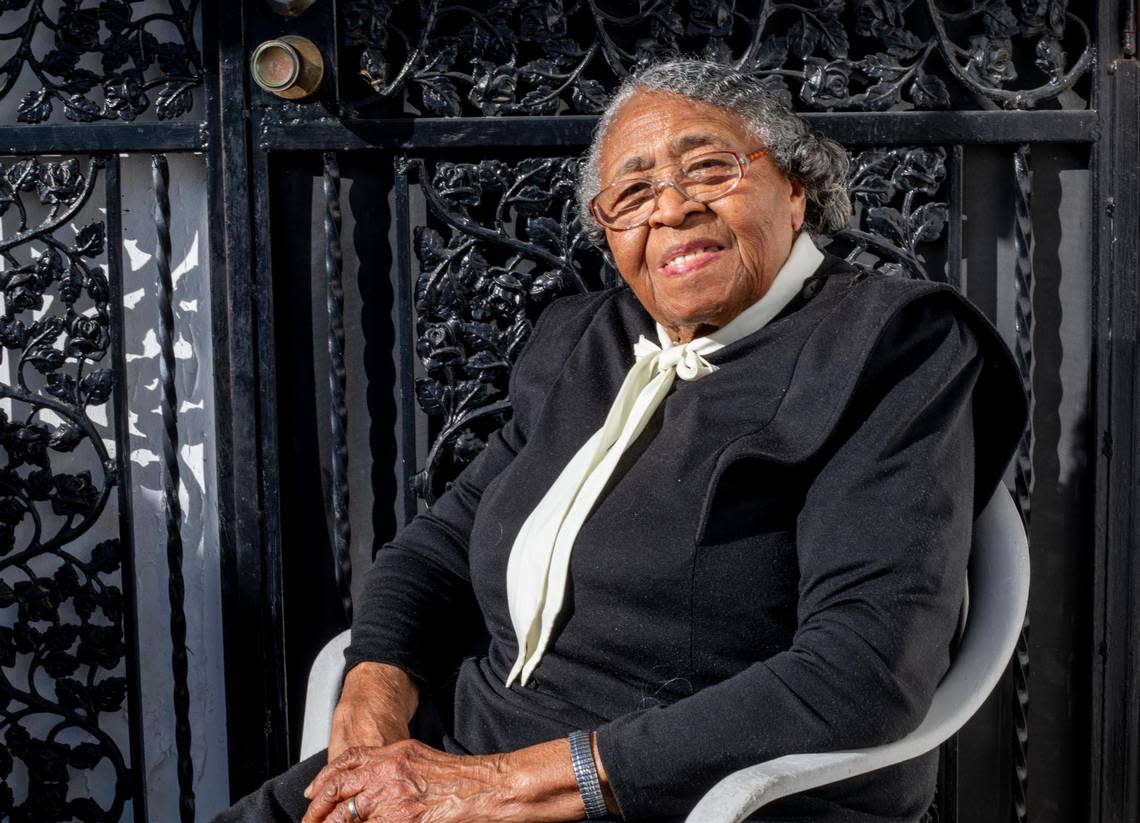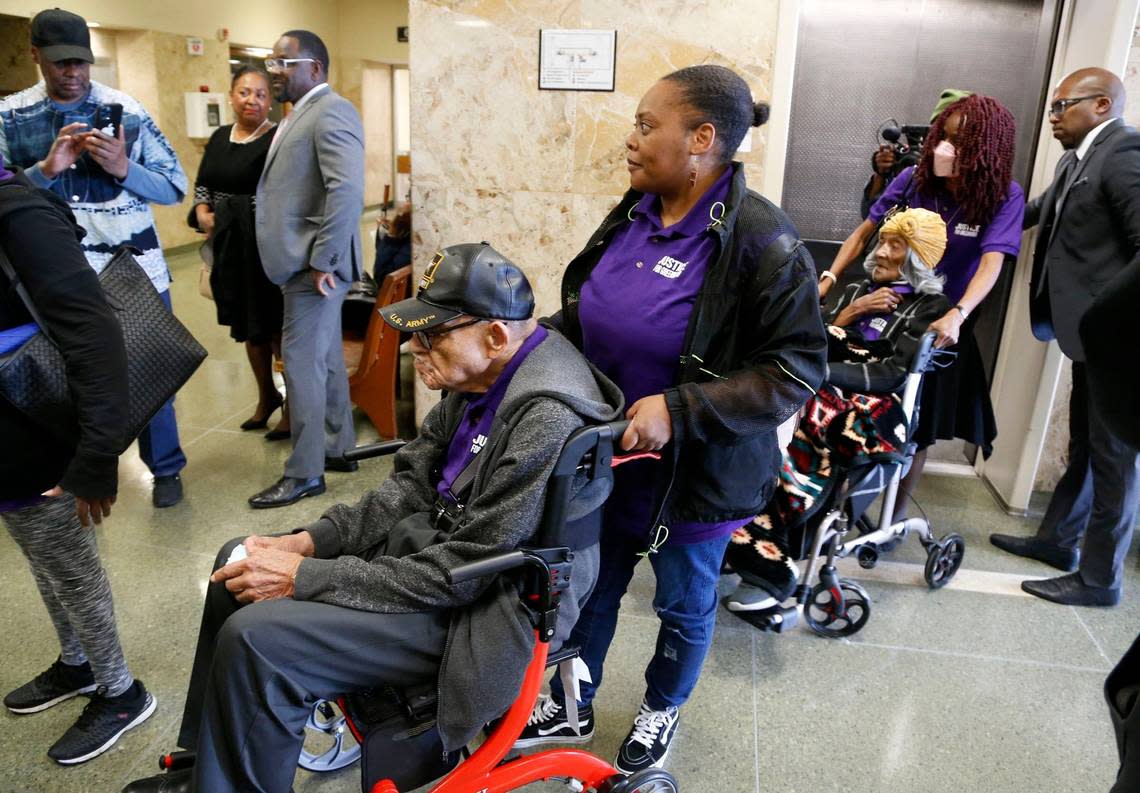The 44 Percent: Thanksgiving, life expectancy & Kendrick Lamar
My grandpa forgot me at the airport last week.
For the past couple years, my mother has been telling me her father had been getting older. Forgetting things. Getting lost. But never in a million years would I expect my grandpa, one of the sharpest, strongest men I know, to go to the wrong airport.
Honestly, it hurt. I cried in the rental car. The idea of Tom Schumpert, a man who survived Jim Crow Mississippi, fought in Vietnam, went to night school to get a college degree and eventually landed a banking executive role, not picking up his only grandson stung. It was hard not to take personal considering how many times I (along with friends and family) confirmed my itinerary. I just refused to acknowledge my pop pop’s declining mental acuity.

What I soon realized was this: not everything lasts forever. It’s important to cherish family and the moments you do have with them. So this Thanksgiving, I’m thankful for my pop pop. I’m thankful for the time we’ll spend together. And most importantly, I’m thankful for the sacrifices he made for me to be here. Just don’t expect me to ask pop pop to come scoop me when I land.
INSIDE THE 305

Black Miami leaders strive to build a tech presence that reflects the area’s diversity:
Miami’s technological boom is far from over.
One question, however, still remains: how will this benefit Black Miamians?
“When you think about technology historically, I don’t know if tech was for us [Black people] in the past,” Venture Miami executive director Erick Gavin said. “It doesn’t mean there weren’t Black technologists or biz leaders who took a huge step forward. [However,] as a community, technology isn’t something we gravitated towards even though we were really well-suited for technology roles.”
People like Gavin believe that Web3, a catch-all term that suggests NFTs, cryptocurrency and blockchains will be a major part of the new internet, can potentially help level the playing field and increase Black participation in the technology space.
“This is about us, as a community, creating our own tables,” Black Web3 founder Simone Berry said, during a recent Zoom session. “I appreciate the permissiveness of blockchain. I don’t need anyone’s permission to create anything.”
OUTSIDE THE 305

How to win Thanksgiving by… learning about your family?:
It might seem like an obvious concept but this Thanksgiving, let’s actually try to learn more about our relatives this year. That premise underscores Elizabeth Keating’s new book, “The Essential Questions: Interview Your Family to Uncover Stories and Bridge Generations,” in which she encourages readers to ask the right questions to learn about our lineage.
They include basic background information, such as where someone was born, as well as more abstract inquiries, such as how someone conceives of their identity, what they believe in, and what they’ve noticed about the passage of time.
The results can be eye-opening:
They enriched their understanding of their own beliefs and cultural habits, as well as the forces that had shaped their family history and, in turn, their own identity. They felt closer to their older relatives too.
And for those of you with a… let’s just say radical uncle, check out the L.A. Times’ piece about how to deal with partisan hostility at the dinner table.

What life expectancy reveals about progress among Black Americans:
Black Americans’ life expectancy is about 71 years old, roughly six years less than their white counterparts.
But how is it that in places like Manassas Park, Va. or Weld County, Co., the average life expectancy for Black residents is 96? Or that Black residents in Jefferson County, Ohio are living 33 less years than those in Manassas Park or Weld County?
The answer, according to Time Magazine’s Andre M. Perry, lies in examining the 13 social conditions (income, education, housing, family composition, etc.) that predict Black life expectancy. Perry’s findings suggest not only that systemically racist forces chip away years at people’s lives but also that the areas where Black people thrive is the result of them “dismantling the architecture of inequality.”
“Social reforms move slowly,” wrote W.E.B. Du Bois, suggesting that we must learn from our circumstances in ways that reject intemperance and blame. “[W]hen Right is reinforced by calm but persistent Progress we somehow all feel that in the end it must triumph.”
Society is toiling with the same struggles around racism that Du Bois faced at the turn of the 20th century. Nonetheless, we must take the time to recognize empirical signs of progress and not rush toward unsophisticated, untruthful narratives of hopelessness or blind ignorance that remove or dismiss our agency. A path of progress demands that we have a clear view of the social, political, and economic landscape in which we live. Recognizing progress and defeats will have us see the very real capacity for future change.

Greenwood Massacre survivors criticize Tulsa’s restitution strategy:
A lawsuit that seeks damages from the city of Tulsa for the 1921 Greenwood massacre has yet to go to trial due to what has been called “a stalling tactic.” Here’s a brief refresher: three plaintiffs over the age of 100 sued the city in 2020, alleging that “the massacre is responsible for Tulsa’s current racial disparities” and “that the city has been enriching itself by turning massacre sites into ‘tourist attractions.’” Tulsa has tried to dismiss the lawsuit three separate times, most recently in early October.
“The city is trying to delay as much as they possibly can in the hopes of our clients dying without getting their day in court,” says attorney Damario Solomon-Simmons, a Tulsa native and executive director of the nonprofit Justice for Greenwood.
Solomon-Simmons is just one of the attorneys representing Lessie Benningfield “Mother” Randle, 108, Viola “Mother” Fletcher, 107, and Hughes Van Ellis, 101.
HIGH CULTURE

Kendrick Lamar’s W Magazine profile:
If you haven’t already, be sure to check out W Magazine’s profile on Kendrick Lamar. This is by far one of the better pieces on not just Lamar but the Pulitzer Prize winner’s latest release “Mr. Morale & the Bigger Steppers” which recently earned Grammy nominations for both Album and Rap Album of the Year.
Where does “The 44 Percent” name come from? Click here to find out how Miami history influenced the newsletter’s title.
